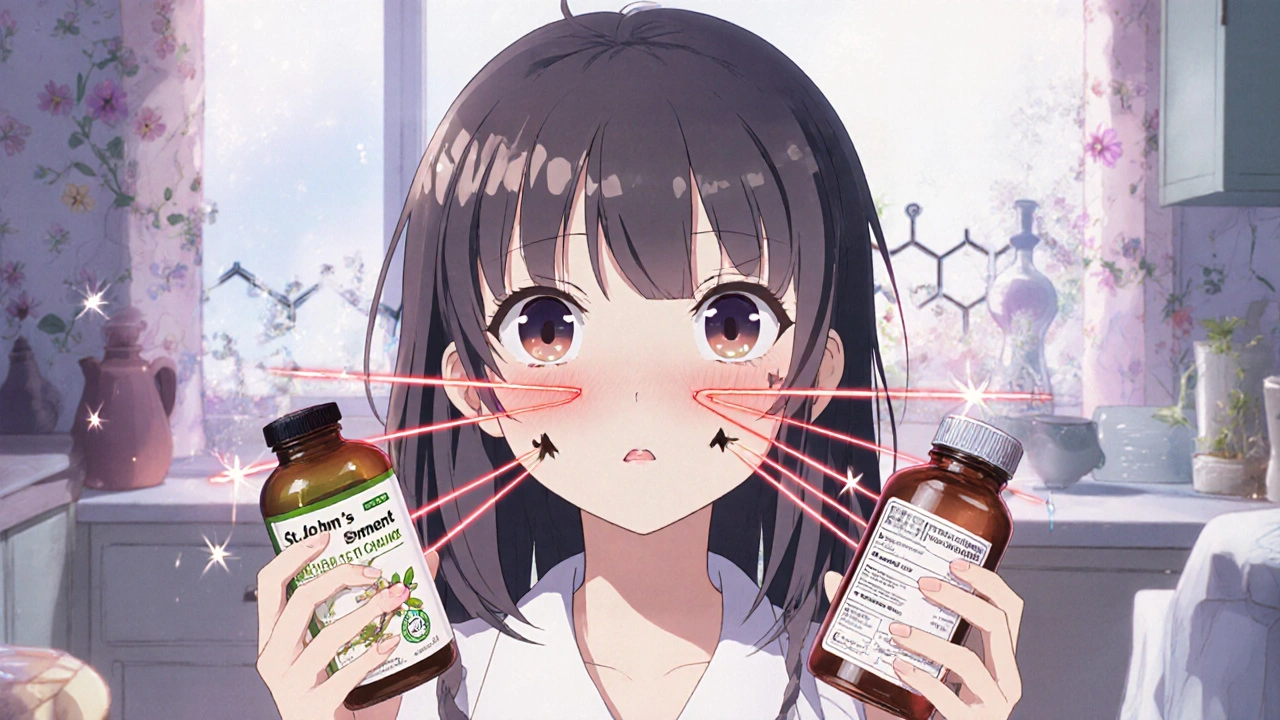
Every year, over 23,000 people in the U.S. end up in the emergency room because a supplement they took messed with their prescription meds. And here’s the scary part: most of them had no idea it could happen. You might think, "It’s just a vitamin," or "It’s natural, so it’s harmless." But that’s exactly how things go wrong.
Why Supplements Can Be Dangerous with Medications
Supplements aren’t regulated like prescription drugs. That means companies don’t have to prove they’re safe before selling them. The FDA can only step in after something goes wrong. So when you grab a bottle of ginkgo, fish oil, or St. John’s wort off the shelf, you’re not getting a guarantee - you’re taking a gamble. The real danger comes from how supplements interact with your body’s drug-processing system. Most medications are broken down by enzymes in your liver, especially a group called cytochrome P450. Some supplements can turn these enzymes up or down, which changes how fast or slow your body processes your meds. For example, St. John’s wort is one of the worst offenders. It can make your body break down drugs like birth control, antidepressants, and even heart medications too fast. That means the drug stops working. A 2021 study showed it can reduce the effectiveness of cyclosporine - the drug transplant patients rely on - by up to 50%. That’s not a small risk. That’s life-threatening. Even something as simple as calcium or iron can interfere. These minerals compete for the same absorption path in your gut. If you take an iron supplement and a thyroid med at the same time, your body might not absorb enough of the thyroid drug. You could end up feeling tired, gaining weight, or worse - even if you’re taking your pill exactly as prescribed.High-Risk Supplements You Should Avoid With Certain Drugs
Not all supplements are equally dangerous. Some are mostly harmless. Others? They’re like a time bomb when mixed with meds.- St. John’s wort: Avoid completely if you’re on antidepressants (SSRIs), birth control, blood thinners, HIV meds, or transplant drugs. It’s linked to over 57 known interactions. The FDA calls it one of the most dangerous supplements on the market.
- Ginkgo biloba: Safe for most people - unless you’re on blood thinners like warfarin or Eliquis. Studies show it can double your risk of bleeding. One Reddit user ended up hospitalized for a week after mixing ginkgo with Eliquis.
- Vitamin E (400 IU or higher): When taken with warfarin, it can push your INR levels up by 15-20%. That means your blood takes longer to clot. A simple cut could turn into a serious bleed.
- Garlic, ginger, and fish oil: These all have mild blood-thinning effects. If you’re scheduled for surgery, your doctor will likely tell you to stop them 7-10 days before. Skipping this step can lead to dangerous bleeding during or after surgery.
- Goldenseal: This herb blocks liver enzymes that process many common drugs, including statins and some antibiotics. It can cause toxic buildup in your system.
How to Check for Interactions - Step by Step
You don’t need to be a pharmacist to protect yourself. Here’s how to do it right:- Make a complete list. Write down every prescription, over-the-counter drug, and supplement you take - including doses and how often. Don’t forget herbal teas, CBD, or protein powders. If it’s something you take regularly, it counts.
- Use the brown bag method. Once a year, or before any major appointment, bring all your meds and supplements in a brown bag to your doctor or pharmacist. Don’t just tell them - show them. A 2022 Johns Hopkins study found this cuts medication errors by 37%.
- Ask your pharmacist. Pharmacists are trained to catch these interactions. In fact, Walgreens and CVS now screen for supplement-drug conflicts during every refill. Ask them: "Do any of these interact with my meds?" They’ll check it for free.
- Check the label. Look for warning statements. If it says "May interact with blood thinners" or "Do not take with antidepressants," pay attention. That’s not marketing fluff - it’s a red flag.
- Use trusted tools. The FDA is launching a new app in late 2024 that scans supplement labels and flags interactions. Until then, use MedlinePlus or the NCCIH website. Avoid random blogs or YouTube videos.
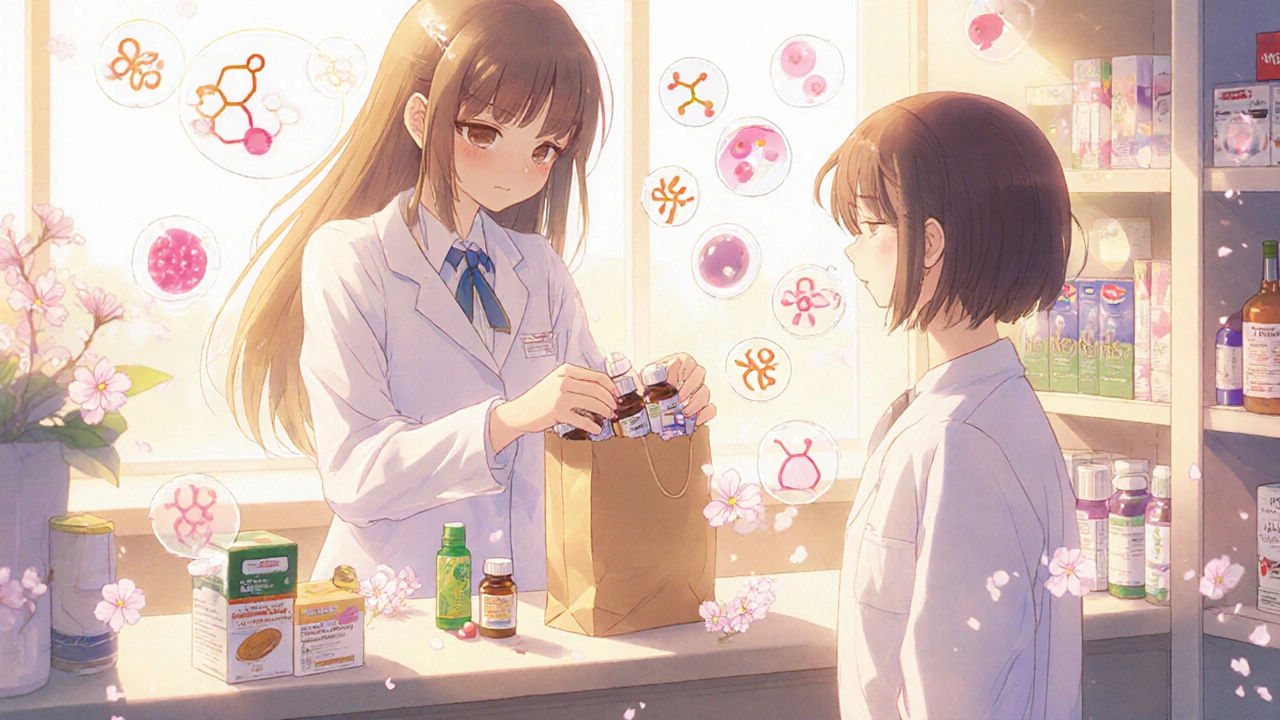
Who’s Most at Risk - And Why
People over 50 are the most likely to be in danger. Why? Because they’re the ones taking the most meds. According to the National Health Interview Survey, 78% of adults over 50 take both prescription drugs and supplements. But only 32% of them talk to their doctor about the supplements. That gap is deadly. Many assume their doctor knows what they’re taking. They don’t. Doctors have 15-minute appointments. They’re focused on your blood pressure, diabetes, or cholesterol. Supplements? They’re an afterthought - unless you bring it up. And here’s another blind spot: people who use supplements for mental health. Many take St. John’s wort for mild depression, thinking it’s a safer alternative to SSRIs. But mixing the two can trigger serotonin syndrome - a rare but potentially fatal condition with symptoms like high fever, rapid heartbeat, confusion, and seizures.What to Do If You’ve Already Mixed Them
If you’ve been taking a supplement with your medication and you’re not sure if it’s safe:- Don’t stop your prescription cold. That can be just as dangerous as the interaction.
- Stop the supplement until you talk to your doctor or pharmacist.
- Watch for symptoms: Unusual bruising, dizziness, nausea, rapid heartbeat, confusion, or extreme fatigue. These could be signs your body is reacting badly.
- Call your provider. Say: "I’ve been taking [supplement name] with [medication name]. I’m worried about a possible interaction. Can we check this?"
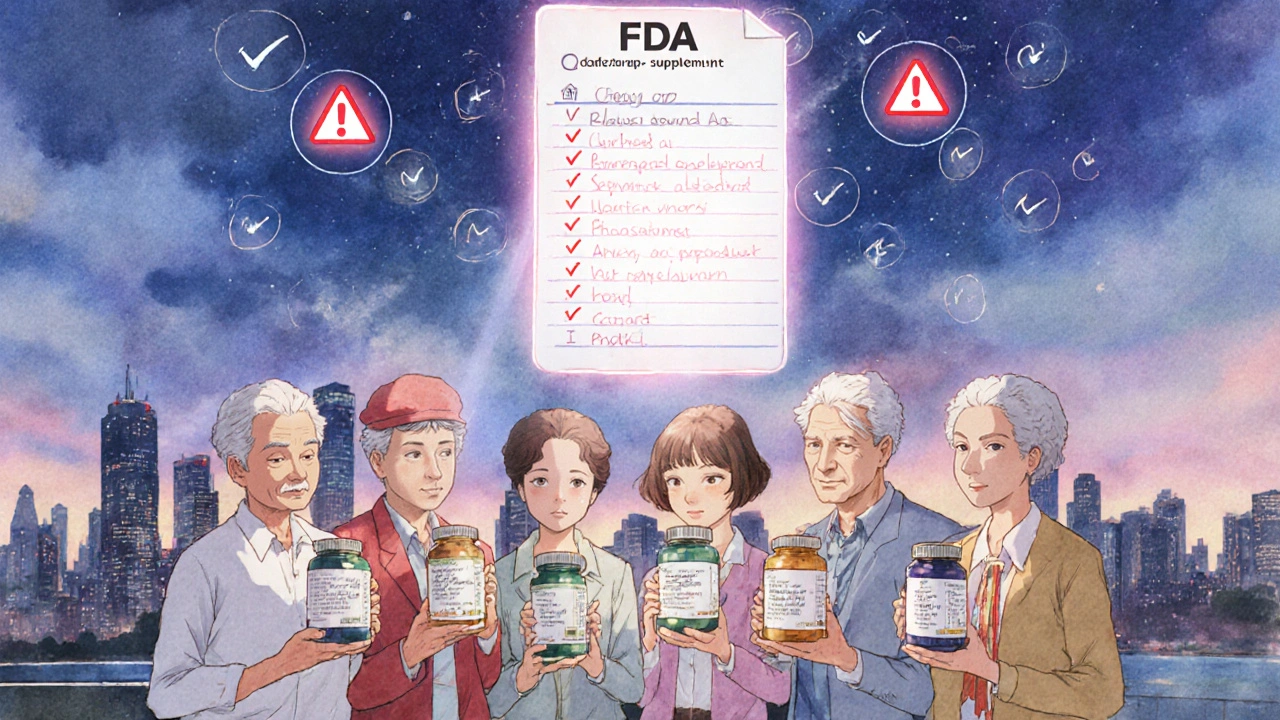
What’s Changing - And What to Expect
The system is slowly catching up. In 2023, the American Medical Association passed a new policy requiring doctors to ask patients about supplement use during every medication review. Epic Systems, the company behind most U.S. hospital electronic records, started adding supplement interaction alerts in 15% of hospitals in early 2024. The FDA is also cracking down on supplements that make illegal drug claims - like ones that say they "cure diabetes" or "replace blood pressure meds." In 2023 alone, they sent out 142 warning letters to companies doing this. And in late 2024, the FDA will launch its first official app that scans supplement labels and instantly tells you if there’s a dangerous interaction with your meds. That’s a big step forward. But until then? You’re still the most important safety net.Bottom Line: Your Health Is Your Responsibility
Supplements aren’t the enemy. But treating them like harmless candy is. The truth is, your body doesn’t care if something is "natural" or "organic." It only cares about the chemicals inside - and how they react with the drugs you’re already taking. If you’re on any prescription medication - even something as common as high blood pressure pills or thyroid medicine - you need to treat your supplements like a second medication. Talk to your pharmacist. Bring your brown bag. Read the labels. Ask the hard questions. Because when it comes to your health, assuming it’s safe isn’t enough. You need to know it’s safe.Can I take vitamin D with my blood pressure medication?
Yes, vitamin D is generally safe with most blood pressure medications. There’s no strong evidence it interferes with drugs like lisinopril, metoprolol, or amlodipine. However, if you’re taking a calcium channel blocker and also taking high-dose calcium supplements, it could affect how the drug works. Always check with your pharmacist if you’re taking multiple supplements along with your meds.
Is it safe to take fish oil with aspirin?
Fish oil has mild blood-thinning effects, and aspirin does too. Taking them together increases your risk of bleeding, especially if you’re older or have a history of ulcers or stomach issues. Most doctors say it’s okay at low doses (under 1,000 mg daily), but if you’re on daily aspirin for heart protection, talk to your doctor before adding fish oil. They might recommend skipping it or lowering the dose.
What should I do if my supplement doesn’t list any warnings?
Don’t assume it’s safe just because there’s no warning. The FDA doesn’t require supplement labels to list drug interactions. Many companies don’t test for them. If you’re unsure, look up the active ingredient (like "St. John’s wort" or "ginkgo biloba") on the NCCIH or MedlinePlus websites. If you’re on a high-risk medication like warfarin, cyclosporine, or antidepressants, always check with your pharmacist - even if the bottle says "no interactions known."
Can herbal teas interact with my meds?
Yes. Green tea can interfere with blood thinners and some antidepressants. Chamomile may increase the effects of sedatives. Licorice root can raise blood pressure and lower potassium levels, which can be dangerous if you’re on diuretics or heart meds. Herbal teas are supplements too - just in liquid form. Always treat them the same way you treat pills.
Do I need to stop supplements before surgery?
Yes, many do. Garlic, ginkgo, fish oil, vitamin E, and even high-dose ginger can increase bleeding risk during and after surgery. Most surgeons ask you to stop them 7-10 days before your procedure. Don’t wait for them to ask - bring up your supplement list during your pre-op appointment. It’s better to be safe than risk serious bleeding.
Are natural supplements safer than synthetic ones?
No. The FDA has repeatedly said, "Natural does not equal safe." Kava caused liver failure. Ephedra led to deaths. St. John’s wort - a natural herb - can make your birth control fail. The source doesn’t matter. What matters is the chemical compound and how your body processes it. A synthetic vitamin C pill and a natural orange extract both contain ascorbic acid - and both work the same way. Don’t be fooled by marketing.
Can my pharmacist help me even if I didn’t get the supplement from them?
Absolutely. Pharmacists can check for interactions regardless of where you bought your supplement. Bring the bottle or a photo of the label - even if you got it online or from a health food store. Most chain pharmacies have free screening tools and trained staff who can review your full list. This service is available to everyone, no matter where you fill your prescriptions.
Next Steps: What to Do Today
You don’t need to wait for your next doctor’s visit. Here’s what to do right now:- Find every supplement bottle in your house - even the half-empty ones.
- Write down the name, dose, and how often you take it.
- Do the same for every prescription and OTC drug.
- Take that list to your pharmacist tomorrow. Ask: "Do any of these interact?"
- If you’re scheduled for surgery in the next few months, call your surgeon’s office and ask which supplements to stop - and when.


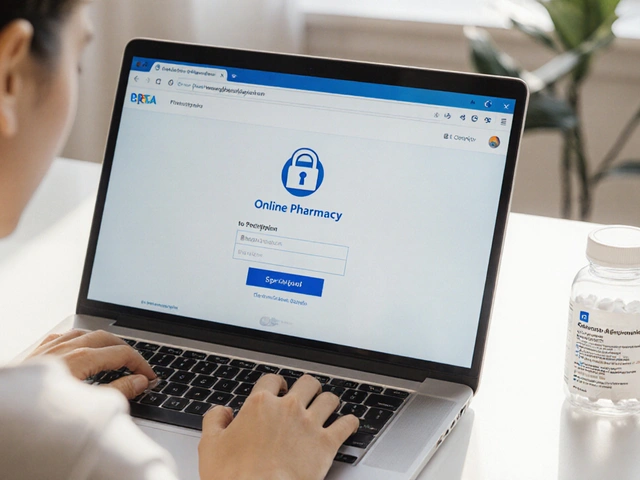
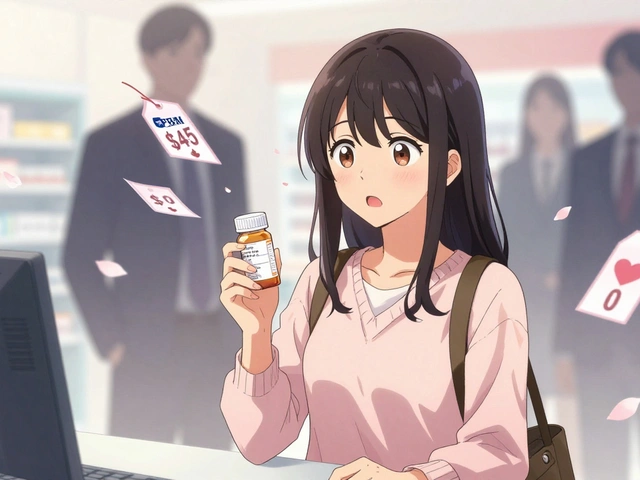

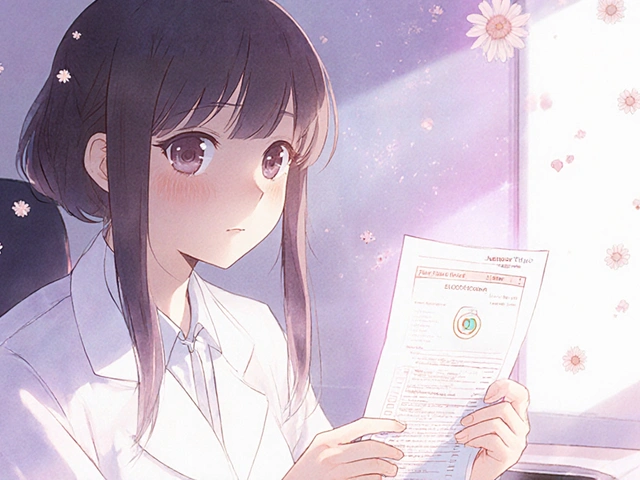
There are 12 Comments
Jack Riley
So let me get this straight - natural doesn’t mean safe, but somehow we still treat ginseng like it’s yoga for your liver? I’ve seen people take turmeric like it’s candy while on warfarin and then act shocked when they bruise like a grape. The system’s broken, not the supplements. We’re all just guinea pigs in a capitalist pharmacy experiment.
Jacqueline Aslet
It is, indeed, a matter of considerable concern that the regulatory framework governing dietary supplements remains fundamentally inadequate in its capacity to safeguard public health. The absence of pre-market verification constitutes a glaring lacuna in pharmacovigilance, and one which, if left unaddressed, may precipitate a cascade of preventable adverse events.
Caroline Marchetta
Oh wow. Another ‘educational’ post about how YOU should be more careful. Meanwhile, the FDA’s been sitting on their hands for 20 years while companies slap ‘natural’ on bottles full of untested chemicals and sell them for $30. You think your pharmacist cares? They’re just scanning barcodes to hit their quota. This isn’t safety - it’s guilt-tripping with footnotes.
Valérie Siébert
YESSSS this is so needed!! I literally had a panic attack last month because I took magnesium with my BP med and felt like my heart was gonna explode 😭 turned out it was fine but I didn’t know and now I keep a laminated list in my wallet. Everyone pls do this. Your future self will cry happy tears.
katia dagenais
You think this is bad? Wait till you find out that 80% of ‘organic’ supplements are just corn starch with a drop of whatever’s on trend this month. I read a paper that said 63% of St. John’s wort brands don’t even contain the active ingredient. And you’re worried about fish oil? Honey, the whole industry is a cult with a label printer.
Josh Gonzales
My dad took ginkgo with aspirin for years and never had a problem. But then again he’s 78 and still rides his bike 20 miles a day. Maybe it’s not the supplement, maybe it’s the dosage. Or maybe he’s just lucky. Either way, I printed out the FDA list and taped it to his fridge.
Ellen Sales
I’ve been doing the brown bag thing for 3 years now and I swear it’s changed my life. Last time I brought in my supplements, my pharmacist caught that my calcium was blocking my thyroid med - I’d been tired for 8 months thinking it was ‘aging’. She fixed it in 5 minutes. We need to stop treating our bodies like machines and start treating them like sacred temples - with respect, not guesswork.
Josh Zubkoff
Let’s be real - this whole thing is a scam designed to sell more pills. The FDA doesn’t care about you. They care about lawsuits. The real danger isn’t St. John’s wort - it’s the fact that your doctor won’t ask you about supplements because they’re too busy getting paid by pharma reps to talk about anything else. You think they’re gonna stop prescribing statins because you’re taking garlic? Please. The system is rigged. And you’re just the mark.
Rachel Villegas
My mom is 82 and takes 12 meds. She started using the MedlinePlus tool last year and now she checks every new supplement before buying. I didn’t even know she was doing it until she showed me her notebook with color-coded warnings. She’s not paranoid - she’s prepared. And honestly? That’s the most responsible thing I’ve seen anyone do.
Emily Craig
Wait so you’re telling me that the same people who scream ‘natural is better’ are the ones popping St. John’s wort like it’s a vitamin C gummy? 😭 I’ve seen it. People think if it’s from a plant, it’s a gift from the universe. Nah. It’s a chemical. And your liver doesn’t care if it came from a forest or a lab. Wake up.
Karen Willie
Just want to say thank you for writing this. I used to roll my eyes at pharmacists asking about supplements. Now I bring my bag every time. It’s not about being scared - it’s about being smart. And honestly? My doctor actually looks me in the eye now when I talk about what I’m taking. That matters.
Aki Jones
They’re lying. All of them. The FDA? The pharmacists? The ‘trusted’ websites? They’re all owned by Big Pharma. The real reason they don’t regulate supplements is because they want you to get sick - so you’ll need more drugs. The ‘interactions’ they list? Just fear tactics to keep you buying their pills. I stopped everything. Now I just drink lemon water and sunlight. It’s the only real medicine.
Write a comment
Your email address will not be published. Required fields are marked *